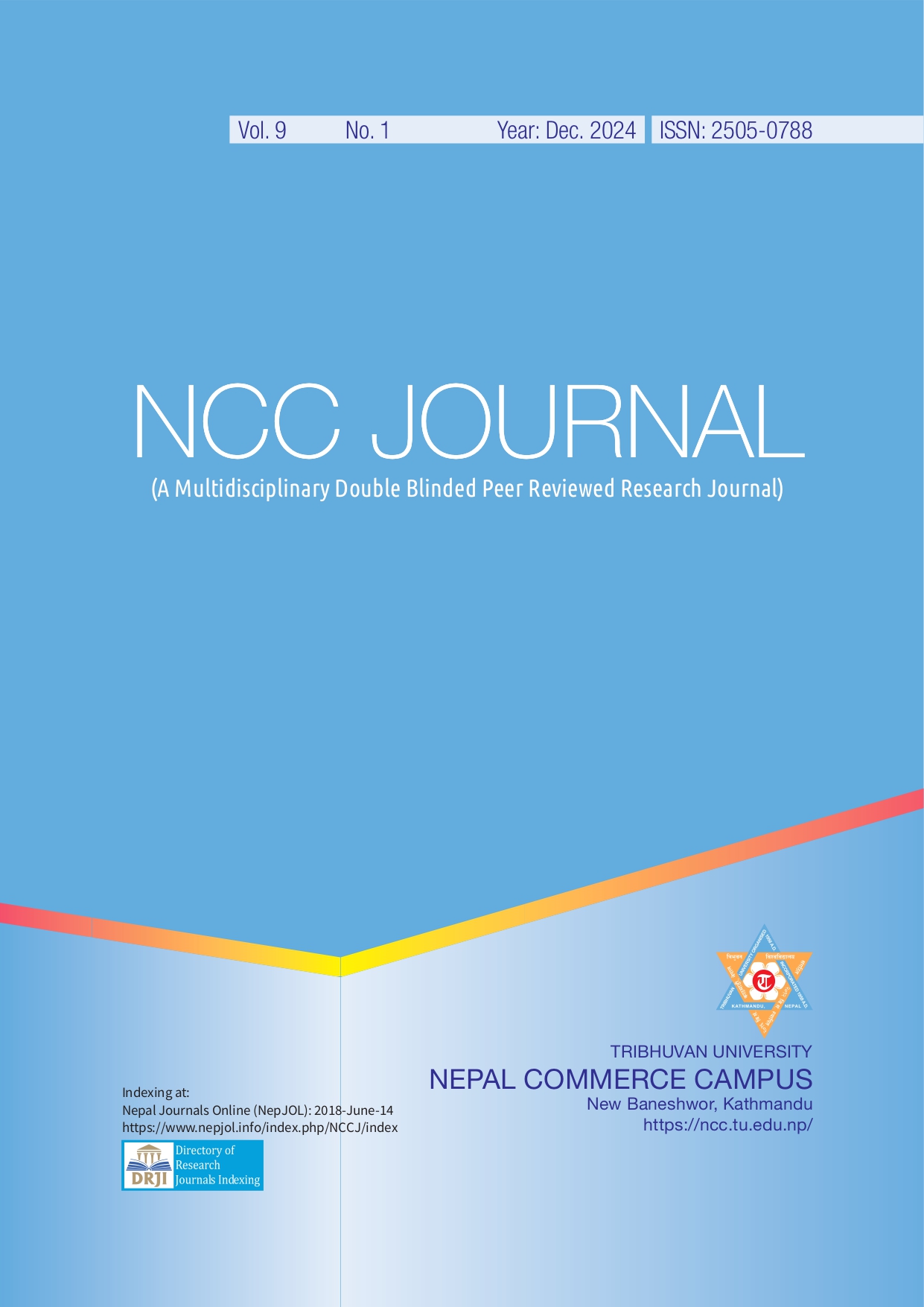Customer Acceptance of Cheque Truncation and Electronic Clearing Services in Nepal
DOI:
https://doi.org/10.3126/nccj.v9i1.72246Keywords:
Convenience, Electronic Cheque Clearing, Fintech, Relative Advantages, Risk Perception, TrustAbstract
Efficient financial systems are vital to the economic integration of nations, with technological connectivity playing a pivotal role. In Nepal, despite the introduction of electronic cheque clearing (ECC) services in early 2012, skepticism persists among users. This study investigates the factors influencing the adoption of clearing services in Nepal, employing primary data collected using structured survey questionnaire. The research explores the relationship between independent factors such as Risk, Convenience, Trust, and Relative Advantages in determining usage patterns. With a sample size of 375 respondents, the descriptive and inferential analyses reveal a strong negative correlation between risk perception and clearing service adoption, while Trust, Convenience, and Relative Advantage exhibit robust positive relationships. Notably, convenience emerges as a key driver of adoption. The findings indicate the need for banks to mitigate risks and enhance user confidence, while also emphasizing the importance of leveraging convenience and relative advantages to promote adoption. This research offers valuable insights into the dynamics influencing the adoption of clearing services in Nepal, informing strategic interventions to boost confidence and increase usage in the financial ecosystem.
Downloads
Downloads
Published
How to Cite
Issue
Section
License

This work is licensed under a Creative Commons Attribution-NonCommercial 4.0 International License.
© Nepal Commerce Campus, Tribhuvan University
CC BY-NC: This license enables reusers to distribute, remix, adapt, and build upon the material in any medium or format for noncommercial purposes only, and only so long as attribution is given to the creator.




